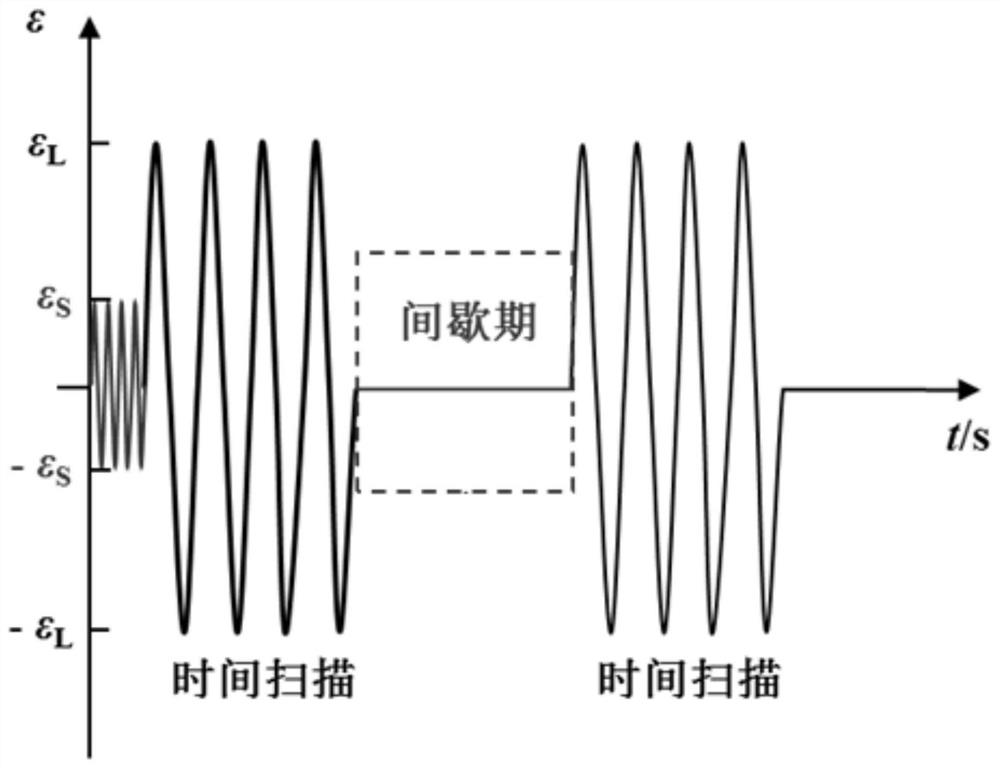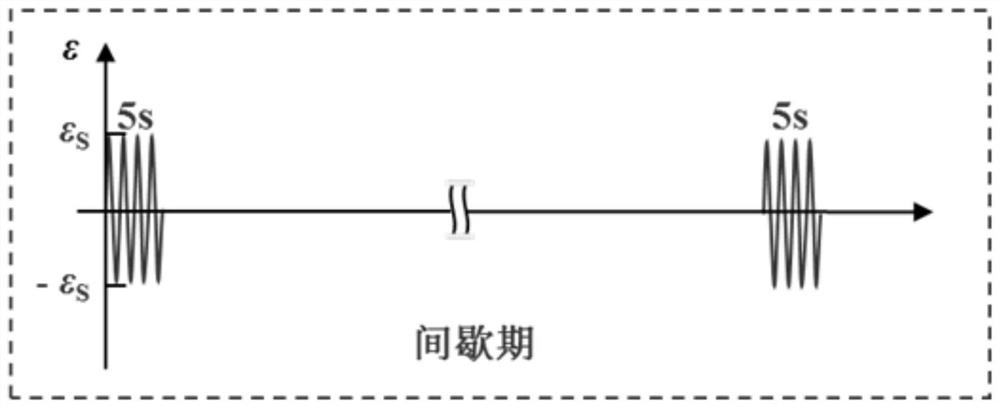Method for testing and evaluating self-healing performance of asphalt
A technology of asphalt self-healing and evaluation method, which is applied in the direction of testing material strength by applying stable shear force, testing material strength by applying repetitive force/pulsation force, and measuring devices, which can solve the problem of not having asphalt modulus and resistance Fatigue performance recovery degree and other issues
- Summary
- Abstract
- Description
- Claims
- Application Information
AI Technical Summary
Problems solved by technology
Method used
Image
Examples
specific Embodiment approach 1
[0030] Embodiment 1: The method for testing and evaluating the asphalt self-healing performance in this embodiment is implemented according to the following steps:
[0031] Step 1. Linear Amplitude Sweep Test (LAS)
[0032] The asphalt sample was kept at the test temperature, and the dynamic shear rheometer was used to apply a sine wave load with gradually increasing amplitude to the asphalt sample, and the dynamic shear modulus was measured, and then the dynamic shear modulus was taken as the ordinate, Obtain the dynamic shear modulus-strain curve test chart with the strain amplitude as the abscissa, find out the data point where the dynamic modulus value is reduced to 90% of the initial dynamic shear modulus value, and the corresponding strain amplitude of the data point is is the strain threshold ε in the linear viscoelastic range of the asphalt material t ;
[0033] Step 2. Self-healing test
[0034] The self-healing test includes low-strain time-scanning test, fatigue ...
specific Embodiment approach 2
[0052] Embodiment 2: This embodiment differs from Embodiment 1 in that the test temperature described in step 1 is 10°C to 30°C.
specific Embodiment approach 3
[0053] Embodiment 3: The difference between this embodiment and Embodiment 1 or 2 is that in Step 1, the holding time of the asphalt sample at the test temperature is 20 minutes to 40 minutes.
PUM
 Login to View More
Login to View More Abstract
Description
Claims
Application Information
 Login to View More
Login to View More - R&D
- Intellectual Property
- Life Sciences
- Materials
- Tech Scout
- Unparalleled Data Quality
- Higher Quality Content
- 60% Fewer Hallucinations
Browse by: Latest US Patents, China's latest patents, Technical Efficacy Thesaurus, Application Domain, Technology Topic, Popular Technical Reports.
© 2025 PatSnap. All rights reserved.Legal|Privacy policy|Modern Slavery Act Transparency Statement|Sitemap|About US| Contact US: help@patsnap.com



